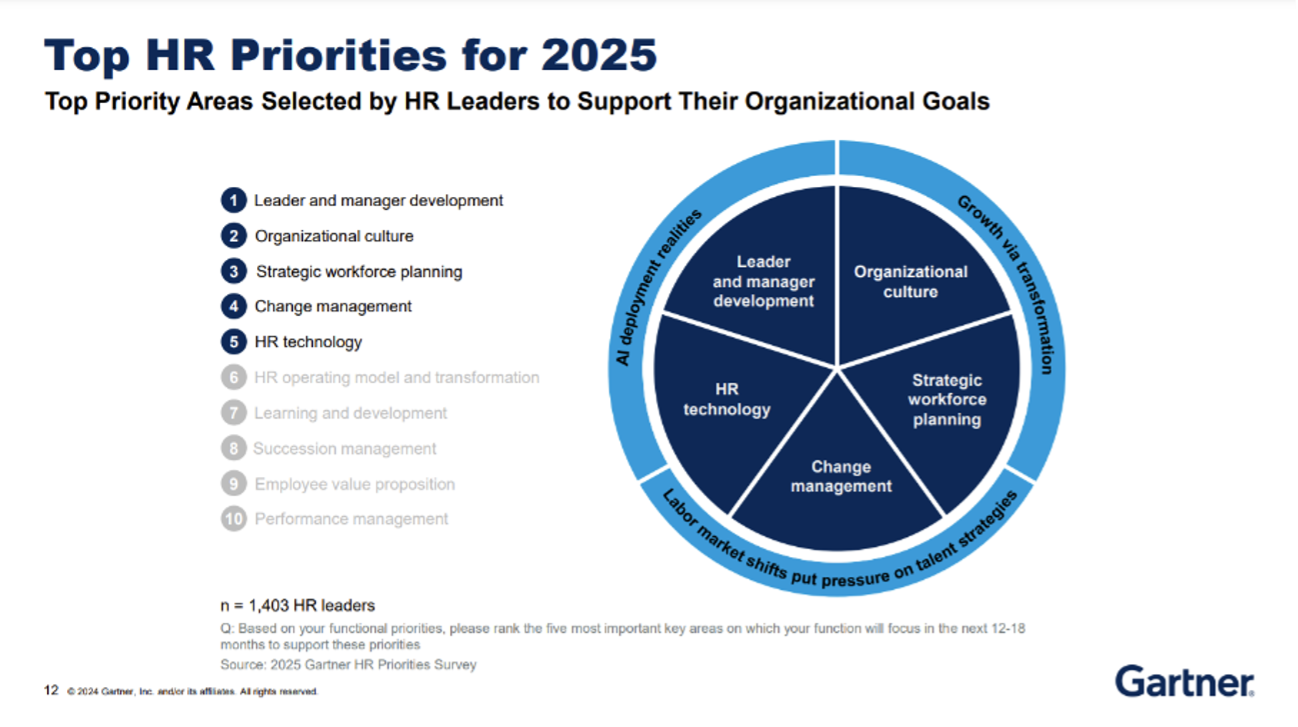
Many leadership development programs 'not seeing results,' says expert

The development of leaders and managers remains the top priority of HR leaders in 2025 amid persistent challenges faced by these individuals in the workplace.
This is the third consecutive year that leader and manager development is the top priority of HR leaders, according to the newly released poll from Gartner, which surveyed 1,403 HR leaders.
The continued focus on leader and manager development comes as the survey found that 75% of HR leaders report their managers are overwhelmed by the expansion of their responsibilities.
Another 69% also believe leaders and managers are not equipped to lead change.
According to the report, 75% of organisations have been implementing significant updates to their leadership development programmes and more than half are increasing spending on leader development to no avail.
"They are not seeing results," said Mark Whittle, Vice President of Advisory in the Gartner HR practice, in a statement.
Gartner's research found that traditional leadership development programmes, such as seminars and lectures, have a negative effect on development.
To address this challenge, Gartner suggested that HR leaders must put more emphasis on "intentionally and strategically enabling repeated peer connections for leadership development via networking and team building."
"For organisations to deliver on their goals, managers must be prepared to successfully lead both today and tomorrow," Whittle said.
Meanwhile, HR leaders' other upcoming priorities for 2025 range from organisational culture to HR technology.
"HR leaders are defining their priorities in the context of three factors that CEOs are focused on and are impacting the world of work: growth, the power of AI and labour market shifts that are putting pressure on talent strategies," Whittle said.

Among the challenges faced by HR leaders when it comes to organisational culture is the lack of a clear vision for the culture that they want.
More than half of HR leaders (57%) have agreed that managers fail to enforce the culture that organisations want on their teams, and leaders do not feel accountable for demonstrating their desired culture.
"HR leaders can facilitate this by equipping teams to translate culture values into their unique context, and by providing actionable, scenario-based guidance, so managers understand what behaviours they should be demonstrating to live the culture they want," Gartner said.
When it comes to workforce planning, 66% of HR leaders said they struggle to demonstrate ROI for strategic workforce planning efforts, limiting their roles to just headcount planning.
More than half of HR leaders (55%) surveyed also think their current tech solutions do not cover current and future business needs, while 46% think current HR technology solutions hinder employee experience.
To address the problems in workforce planning, Gartner suggested breaking down strategic workforce planning into "achievable phases," such as by starting with small pilots and prioritising projects by evaluating their relevance and HR's capability to execute on them.
On HR tech concerns, Gartner said HR leaders should first define the outcomes they want in order to show business value via HR technology.
They are also encouraged to go beyond using technology for automation and efficiencies, and find technologies that will enable HR's strategic business value.
Another priority of HR leaders next year is change management, as 73% of HR leaders report that their employees are fatigued from change.
Another 74% said their managers are not equipped to lead change, according to the report.
To address the problem, Gartner outlined the following solutions: